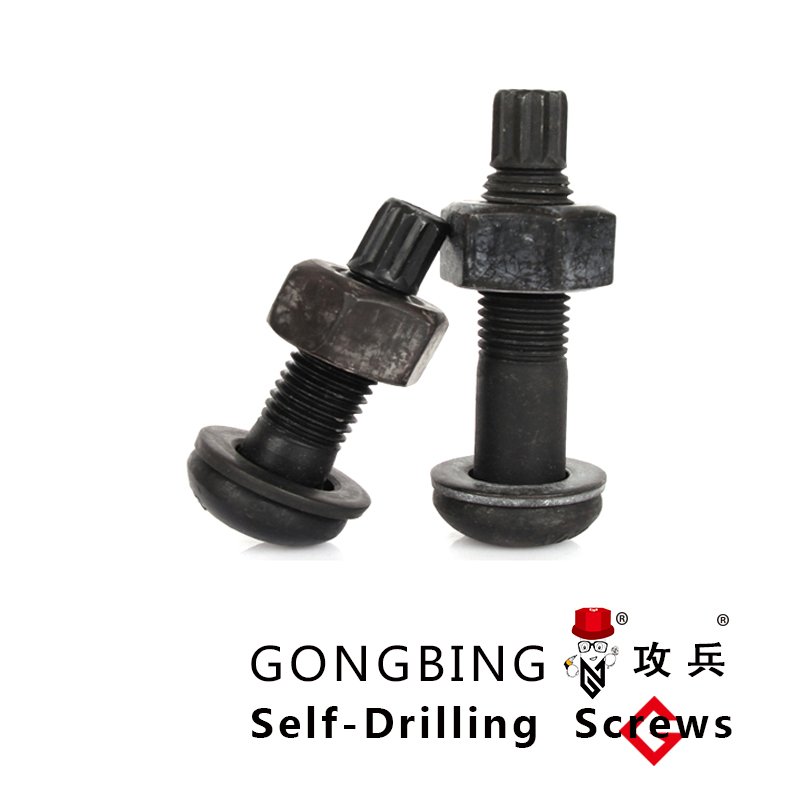Full Threaded Studs - High-Quality Industrial Fasteners
Understanding Full Threaded Studs Applications and Benefits
Full threaded studs are a crucial component in various engineering and construction applications. These cylindrical fasteners are predominantly utilized in situations where high tensile strength and stability are required. Unlike conventional bolts, which may have a partially threaded shaft, full threaded studs feature threads that extend the entire length of the shaft. This design provides several advantages, making them a popular choice in multiple industries.
One of the primary benefits of full threaded studs is their enhanced load-bearing capacity. The continuous thread distribution allows for uniform pressure distribution along the fastener, reducing the likelihood of failure or fatigue over time. This characteristic is particularly vital in structural applications where safety is paramount, such as in bridges, buildings, and heavy machinery.
Additionally, full threaded studs facilitate easier adjustments in applications where precise tensioning is required. The full-length threads enable the user to apply nuts and washers at either end, providing flexibility in assembly. This feature is beneficial in situations where maintenance and adjustments need to occur frequently, as it allows for efficient disassembly and reassembly without compromising the integrity of the fastening system.
In the automotive industry, full threaded studs are commonly used in engine assembly, suspension systems, and exhaust systems. Their robustness ensures that critical components remain securely fastened under high stress and extreme conditions. The ability to withstand vibrations and torsional forces further establishes full threaded studs as a preferred choice in high-performance vehicles, where reliability is essential.
full threaded studs

The versatility of full threaded studs extends to their material composition as well. They are available in various materials, including stainless steel, carbon steel, and special alloys, each offering unique properties tailored to specific applications. For instance, stainless steel full threaded studs are favored in environments susceptible to corrosion, such as marine or chemical processing applications. On the other hand, carbon steel studs may be utilized in less corrosive environments where cost-effectiveness is a priority.
Installation of full threaded studs is also relatively straightforward, often requiring only standard tools. This ease of installation coupled with their low maintenance requirements can significantly reduce labor costs and downtime in industrial settings. Proper torque specifications during installation can further enhance the performance and longevity of the joint, ensuring optimal results.
Furthermore, the availability of full threaded studs in standardized dimensions simplifies sourcing and inventory management. Manufacturers can easily replace or procure these fasteners, streamlining production processes across various sectors.
In conclusion, full threaded studs are essential components characterized by their robust construction, versatility, and ease of use. Their applications span across numerous industries, including construction, automotive, and manufacturing, owing to their ability to withstand high loads and provide dependable performance. As technology advances, the demand for high-quality fasteners like full threaded studs is expected to grow, driving innovation and improved manufacturing processes. For engineers and manufacturers, understanding the properties and benefits of full threaded studs can lead to better design choices and enhanced safety in their projects.
-
Weatherproof Plastic Expansion Anchors for OutdoorWararkaJun.06,2025
-
Sustainability in the Supply Chain: Eco-Friendly TEK Screws ProductionWararkaJun.06,2025
-
Load-Bearing Capacity of External Insulation FixingsWararkaJun.06,2025
-
Double Head Bolts: Enhancing Efficiency in Industrial MachineryWararkaJun.06,2025
-
Corrosion Resistance in Chipboard Screws: Coatings for Wholesale DurabilityWararkaJun.06,2025
-
Butterfly Toggle Bolts : Enhancing Structural ResilienceWararkaJun.06,2025
